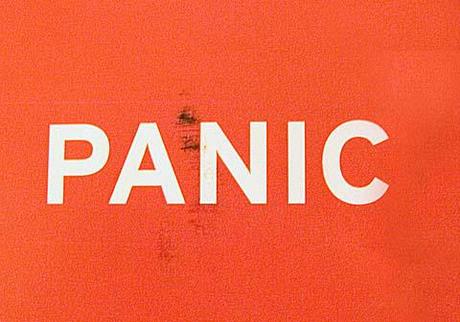
Panic o'clock? Not quite. Photocredit: litherland http://flic.kr/p/4edqgV
Believe everything you read and you would barely venture out of the safety of your bedroom, for fear of coming in contact with something that will fill your body with cancer, damage your emotional state, or give you some form of debilitating genital warts. But why is so much laughably exaggerated and alarmist “science” peddled around the media in the form of dramatic headlines? Are science reporters bad scientists, with weak scientific moral compasses? Are they just appeasing tyrannical editor overlords?
Where does this need to exaggerate and alarm come from, and how can we raise the standard of health & science reporting?
The problem isn’t caused by a paucity of genuine, exciting science being released daily, and I also don’t believe that most of the science being reported in hyperbolic articles is itself bad or inaccurate. For example, a sweep of headlines for the recent “Is Facebook altering your brain?” story would make you think that to make your brain bigger, you need to get more friends on Facebook, but the paper itself makes no such grand statements, just claiming that, according to its findings, grey matter density in certain brain regions was “predicted” by friend count. It is only when over zealous press-release writers and enthusiastic reporters get their grubby paws on a story that causation gets seriously implied, or even reported as fact.
Science reporting generally speaks of “breakthroughs” and “revolutionary studies”, but the majority of modern scientific progress arises from a gradual progression and evolution of ideas. Equally, almost no science paper declares its findings and implications with the unflinching certainty that you would expect, based on their representation in the media. Somewhere between the scientists’ publications and the newspaper reports, the intricacies, doubts, and relative importance of stories gets diluted and polluted, until it’s impossible to distinguish between attention-grabbing features, and genuine, representative reporting. The journalistic urge to represent science as black and white certainties means that almost no science is fairly reported, and this breeds mistrust in the scientific community, as if scientists are forever boldly declaring that this drink will kill you, or that food will render you infertile.
I can only assume, therefore, that most science itself isn’t fascinating and dramatic enough to enthral the public, so it has to be jazzed up by exaggeration. The bespectacled dweeb in my heart is adamantly refusing to accept this. The issue is predominantly one of editorial selection. The battle for readers is intense, and the truth is, explosive headlines and threatening health risk stories bring in viewers. So maybe it’s all the fault of the readers. The scientific community and process of research development is, in a sense, driven by an underlying scepticism – an urge to mistrust and question information until it’s proven – and maybe the public just needs to show a bit more of this scepticism.
Revolution is in the air. Let us unite the will of the people and force a change in science writing in mainstream media everywhere.
We are living in an era of revolution and protest. Could this be the moment in time when the newspaper-reading world rises up in fury, and refuses to accept idiotic science reporting? Let’s unite the will of the people and force a change in science writing in mainstream media everywhere! My plan is simple: next time you see a headline along the lines of “New research shows Twitter will make your toes fall off”, don’t click on the link. If the public demand for alarmist science reporting were to die down, maybe genuine, reasonable, fascinating science writing would emerge to take its place in the mainstream media. Perhaps the journalistic focus would switch to reporting gradually emerging trends, illustrated by numerous studies, and isolated small-scale studies wouldn’t get such disproportionate coverage.
That is undoubtedly about as likely as it is that making friends on Facebook is enlarging your brain. I, as much as anyone, know the enticing, irresistible draw of the dramatic, life-threatening headline – after all, what if this time it’s true, and, for example, cheese really does lead to blindness? I also increasingly understand the editorial battle between reader-winning stories and heavy-handed niche reporting, while, as a writer myself, I freely admit to being tempted by the addictive allure of knowing that thousands of people have been drawn into a story you wrote. Maybe we’re doomed. Perhaps people unwilling or unable to seek out dedicated, top-notch science outlets (of which there are plenty) will forever be subjected to a hodgepodge of health stories and science “revolutions”, with little distinction between fact and maybe-fact.
But maybe all we can hope for is that next time you see a headline telling you that your phone is killing your child, or bacteria behind your ear is giving you syphilis, just read the article with an air of wary suspicion and a critical eye.

